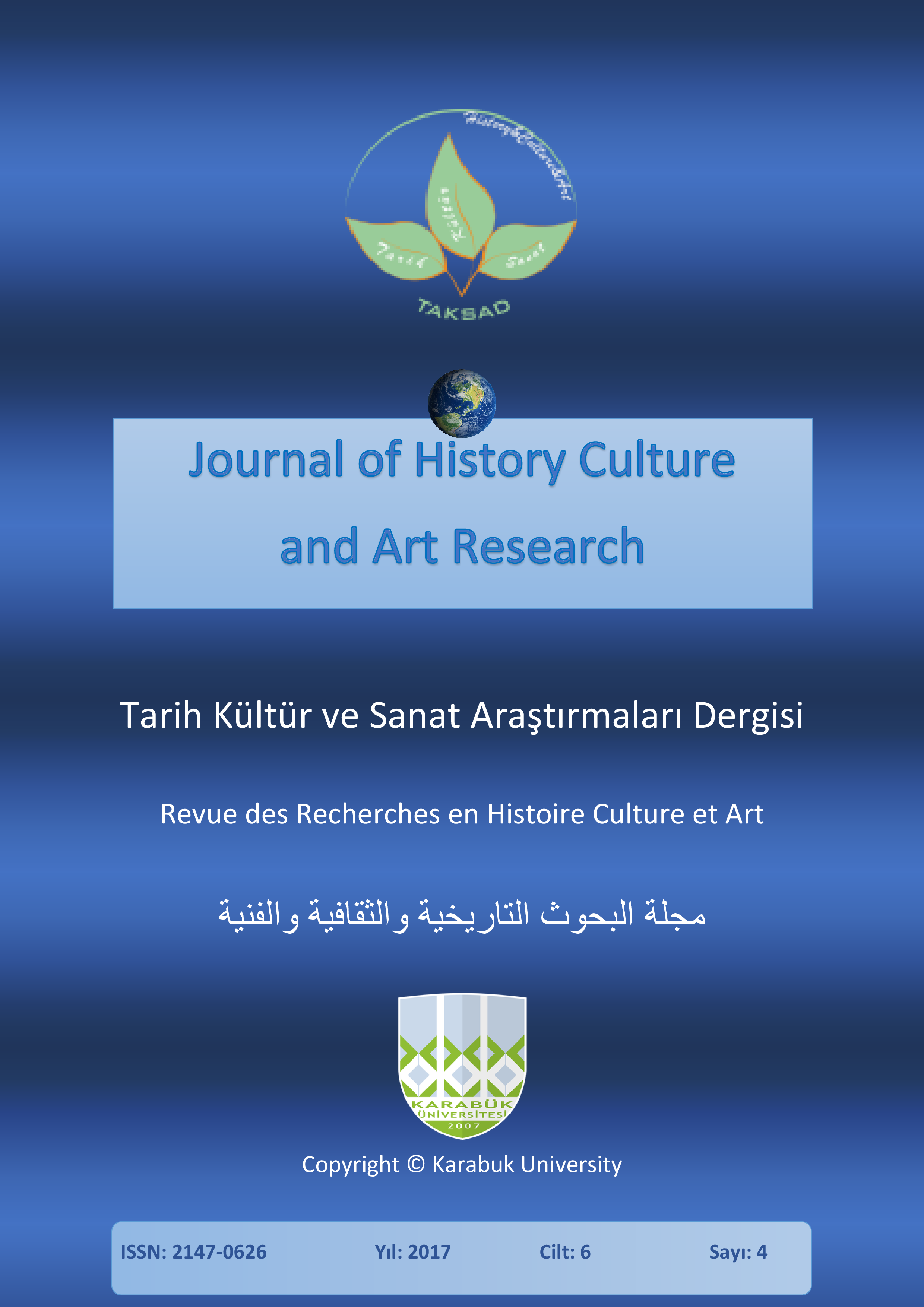A Critical Study on Components of Political Thought in Amir Adel tale by Nizam al-Mulk
DOI:
https://doi.org/10.7596/taksad.v6i4.1029Keywords:
Political thought, Amir Adel, Siyasatnama, Nizam al-Mulk, Seljuk.Abstract
Making historiography about Iran’s political thought in Seljuk era is futile without considering Nizam al-Mulk’s Siyasatnama. Applying historical approach to several tales in this book, Nizam al-Mulk endeavored to formulate his favorite and pleasant political-religious thought which defines political thought of Sunni Islam. The first and the most prominent and detailed tale is Amir Adel, which is investigated closely in this research by comparing to the other historical texts. This study sheds light on differences and peculiar aspects of Nizam al-Mulk’s Amir Adel narration and seeks reasons behind these significant differences in Nizam al-Mulk’s religious and political thought. Hence, there are two questions for this research: 1- What are the components of Nizam al-Mulk’s political thought; 2- How these components can form his Amir Adel narration.
References
Abu Sa'id Gardezi (1984). History of Gardezi. Tehran: Donyaye Ketab publication.
Al-Athir, A. (1958). The Complete History, V8. Beirut: Arabic Daralktab publication.
Al-Jabri, Mohammed Abed (2010). Critique of Arabic Intellect, translated by Sayyid Muhammad al-Mahdi. Tehran: Nasle Aftab publication.
Al-Masudi, Abu al-Ḥasan Ali ibn al-Husain (1968). The Meadows of Gold, translation by Abo Al-Qassem Payandeh. Tehran: Society of translation corporation and book publication.
Al-Muqaddasi, Muḥammad ibn Aḥmad (1982). The Best Divisions for Knowledge of the Region, V2, translation by Ali-Naghi Monzavi. Tehran: Society of translation corporation and book publication.
Bondari (1977). History of Seljuk dynasty, translation by Mohammad Hussein Jalili. Tehran: Iranian Cultural Foundation publication.
Daftary, Farhad (1999). A short history of the Ismailis, translation by Fereydoon Badrei, Teheran: Foroozan Publishers.
Hndvshah Nakhjavani (1978). Tajareb Alsaf, Abbas Eghbal. Tehran: Tahouri publication.
Khallikan (1832). History of Ibn Khallikan. Tehran: Bina publication.
Khvandamir, Ghiyāś ad-Din Muḥammad (1965). Habib al-Siyar, V2. Tehran: Khayyam publication.
Nizam al-Mulk, Abu Ali Hasan ibn Ali Tusi (1968). Siyar al-Muluk (Siyasatnama), effort by Hubert Darke. Tehran: Society of translation corporation and book publication.
Tabari, Muḥammad ibn Jarīr (1988). History of the Prophets and Kings, V4. Beirut: Dar al-kotob al-ilmiyah publication.
Tabatabai, Javad (2011). Nizam al-Mulk: Discourse in cultural continuity of Iran. Tehran: Negah Moaser publication.
Tārikh-e Sistān (1935). Bahar. Tehran: Kelale Khavar publication.
Downloads
Published
How to Cite
Issue
Section
License
All papers licensed under Creative Commons 4.0 CC-BY.- Share — copy and redistribute the material in any medium or format
- Adapt — remix, transform, and build upon the material for any purpose, even commercially.
Under the following terms:
Attribution — You must give appropriate credit, provide a link to the license, and indicate if changes were made. You may do so in any reasonable manner, but not in any way that suggests the licensor endorses you or your use.
- No additional restrictions — You may not apply legal terms or technological measures that legally restrict others from doing anything the license permits.







